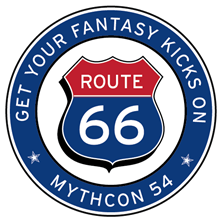Abstract
Examines Tolkien’s theory of authorship and storytelling by exploring the literary allusions to Shakespeare’s Macbeth in the Witch-king’s fall and the theory of creation in Tolkien’s description of the Silmarils. Tolkien alludes to Macbeth to undercut both the modern view of the author as an isolated genius and to critique the approach to literary allusion that reinforces this view. Fëanor’s creation of the Silmarils serves as a symbolic representation of modern authorship, suggesting that Tolkien not only disagrees with a singular model of authorship but also believes it to be a manifestation of corrupted artistry. Ultimately, both the Witch-king and Silmaril passages reveal that Tolkien believed modern interpretations of authorship had become too narrow and failed to reflect the multiply-sourced nature of storytelling.
Creative Commons License

This work is licensed under a Creative Commons Attribution-NonCommercial-No Derivative Works 4.0 International License.


